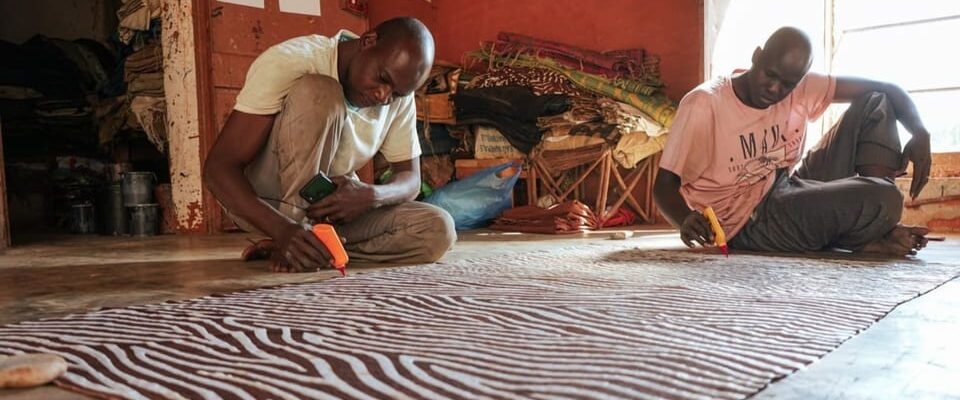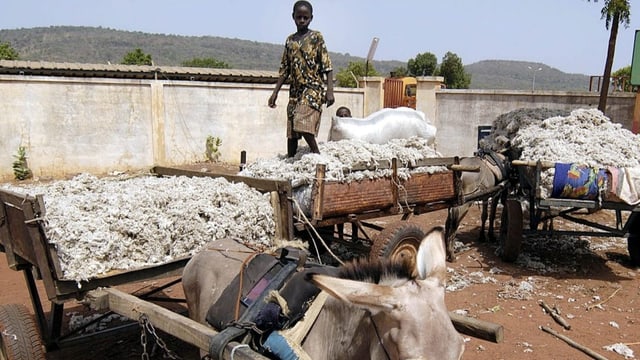Contents
Cotton is one of the most important raw materials for Mali. But the country in the Sahel can hardly use the potential. However, some die-hards try local processing.
A worker washes dirt from the cotton cloth. The fermented mud gives the fabric its color. A black and beige pattern appears on the cloth – it is Bogolan, a traditional Malian fabric, dyed at Atelier Ndolo, in the small town of Ségou.
Legend:
Workers use liquid soap to draw a pattern on bogolan fabric, a traditional Mali fabric, at Atelier Ndolo in the small town of Ségou.
srf/Samuel Burri
Mali produces a lot of cotton, says boss Boubacar Doumbia. “Only part of it is made into fabric locally, we dye it by hand.” He primarily sells his textiles to lovers of Mali’s culture and tourists. But they have become even rarer after the military coup and because of the threat from jihadist gangs.
The Comatex textile factory is only a five-minute drive away. A few men are standing by the entrance gate. The factory doors are rusting, the windows are dusty, and the factory has been idle for two years.
Outdated machines, no investors
The factory used to be a leader in the region and had 1,300 employees. For example, fabrics were printed with politicians’ likenesses for the election campaign, as trade union leader Abdoulaye Diakité says. “Orders even came from Central Africa, Guinea and Burkina Faso. Everyone wanted our fabrics.” But the state-owned company was struggling with problems, and its machines were outdated.
The manufacturing industry in Mali is starving. Outdated machines, lack of liquidity, problems with electricity supply and fuel for the generators. Comatex was hit by poor general conditions coupled with mismanagement. The fabrics from Mali are too expensive for the world market. Therefore, the local textile industry could never take off.
We have to put an end to the Chinese. They are bad partners that Mali cannot benefit from.
In 2014, a Chinese company took over the majority of the textile factory – and also failed. And in May 2020, Comatex was officially closed due to Covid-19. The Chinese have run the shop into the wall, says the trade unionist. “We have to put an end to the Chinese. They are bad partners that Mali cannot benefit from.”
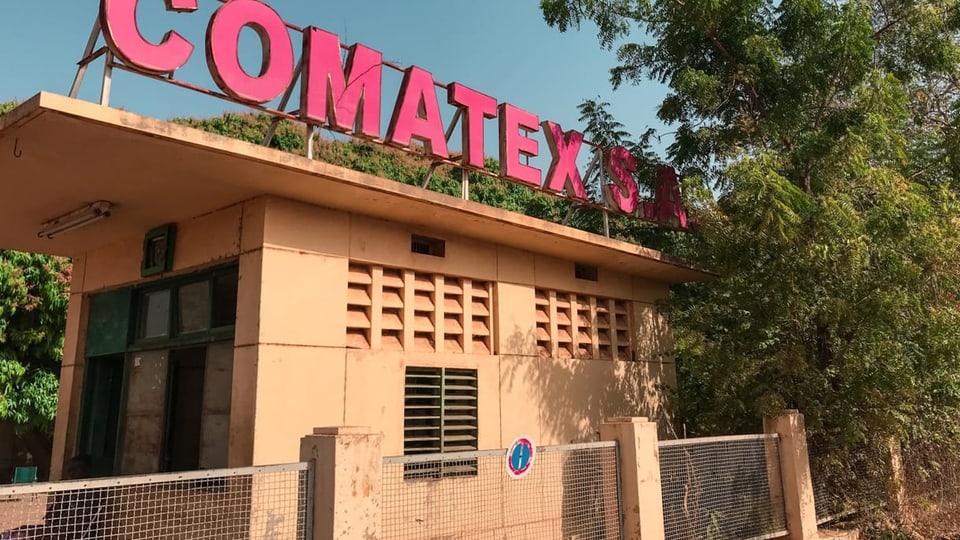
Legend:
The disused Comatex textile factory in Ségou. The factory gates are locked.
srf/Samuel Burri
Now they are in talks with Turkish investors. But that was months ago now. The Comatex continues to gather dust.
Local processing attempt
Weaving is still going on on a street corner in Mali’s capital, Bamako. Between the traditional looms stands Namissa Sow.
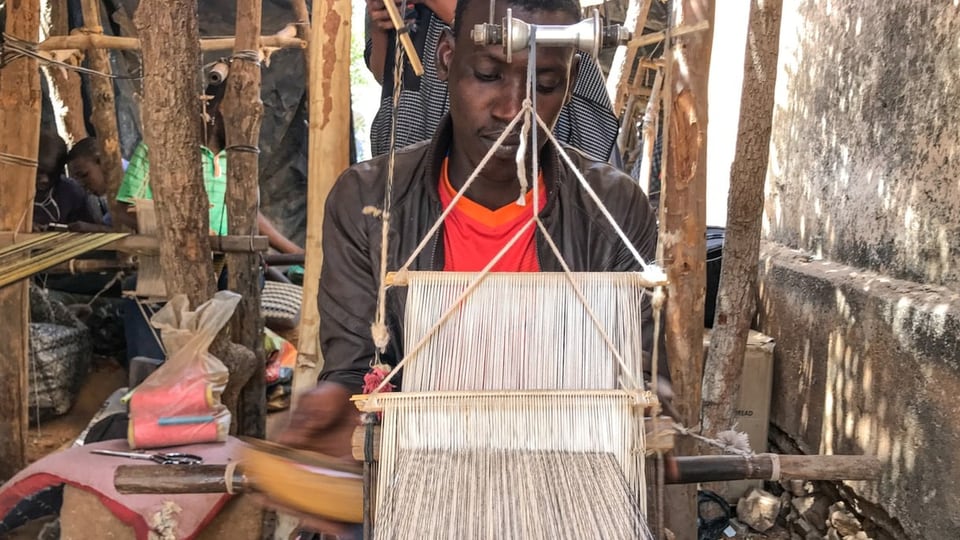
Legend:
A traditional roadside weaver in Bamako. He manages up to 15 meters of fabric a day and earns the equivalent of around ten francs. This is where the designer Namissa Sow gets some of her textiles
srf/samuel Burri
The designer gets her fabric here. Whenever possible, she uses local products in her studio. But: “Only cotton thread is produced in this country. But even that is sometimes not available,” she explains.
The designer imports finer cotton fabrics but dyes them locally. Despite difficult framework conditions, Sow managed to make a name for itself locally. Two military coups in recent years and sanctions by the West African Economic Community make the situation more difficult.
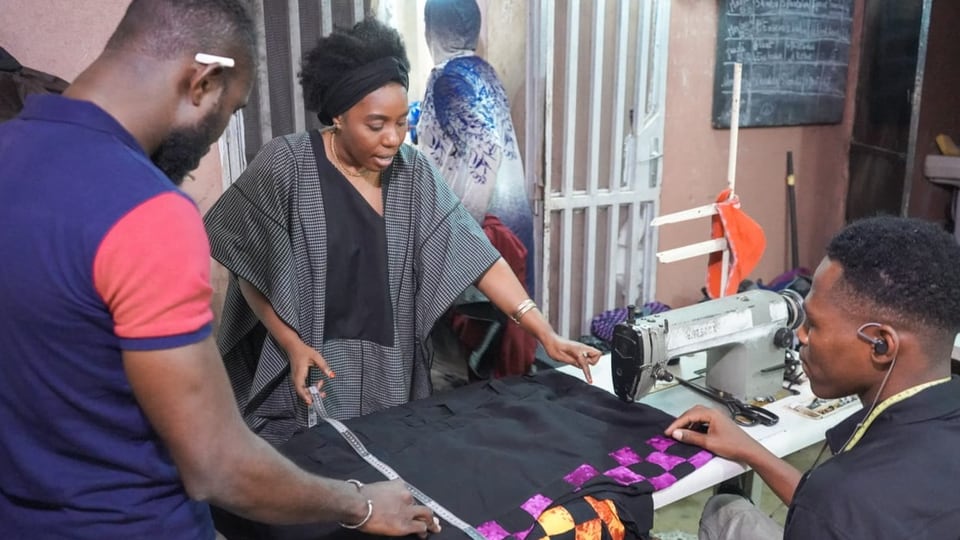
Legend:
Designer Namissa Sow confers with her co-workers. She is the managing director of the fashion label Ikalook.
srf/Samuel Burri
“It’s not easy at all. But I can prevail! I need passion and courage to keep motivating my team,” says Sow.
I need passion and courage to keep motivating my team.
The fashion lover has long been an entrepreneur. She created jobs. In a country where so much cotton grows, but hardly any textile industry exists. She dreams of her own factory to process the local cotton from A to Z. “That’s one of my biggest dreams for Mali.”
